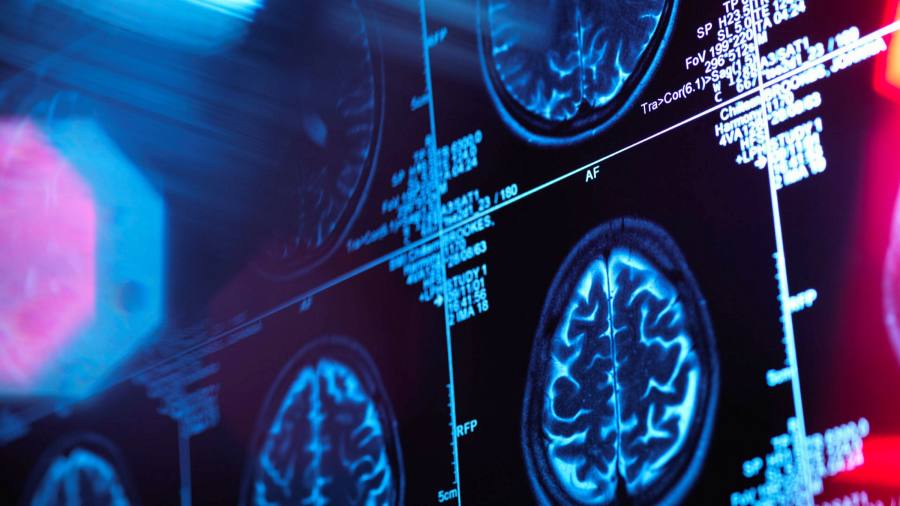[ad_1]
Although the potential for artificial intelligence to transform healthcare in lower income countries has been much hyped, the technology is proving genuinely useful in helping Africa overcome difficulties in tackling diseases.
Such technology can automate medical tasks and help doctors to do more with limited resources. It can even accelerate advances if certain barriers are overcome.
The work of minoHealth AI Labs, the Ghana-based data science start-up that I founded, offers one example. By collecting medical images, we are seeking to automate radiology through the use of deep learning.
Using an algorithm called a convolutional neural network — a form of deep learning designed to emulate the way vision works in animals — we have been able to develop image recognition tools to help diagnose conditions including breast cancer, pneumonia, fibrosis and hernia.
We are exploring additional applications in neuroscience, optometry, oncology, epidemiology and nutrition. We have developed systems to study and identify differences between populations with high and low immunity to malaria, which could help develop more effective vaccines. We are researching digital diagnostics to speed up the detection of infectious diseases.
But to more fully realise the potential of AI, we need to tackle five key barriers in lower and middle income countries.
Infrastructure
Health facilities generate data but often lack the digital infrastructure for its proper storage. Patient records are poorly managed, with medical centres often handing over test results to patients or other facilities without keeping a copy. This limits the data available to help develop and assess AI systems. Lower and middle income countries need to invest in more digital medical devices as well as digitisation systems.
Data culture
Health facilities need a “data culture†that values information and makes tools and resources available to clinicians. Those we work with in Ghana record and store digital patient records, using multiple systems including electronic health records, picture archiving and communication systems and radiology information systems.
Governments and health agencies should encourage health facilities and providers to adopt suitable clinical information systems — which are comprehensive and compatible — and support training for data-driven healthcare.
Send us your ideas on how technology can improve healthcare
The Lancet and FT Commission comprises independent leading experts who will publish their peer-reviewed report in late 2021. Share your views here.
Read the rest of our Future of AI & Healthcare special report here.
Regulations and standards
There is a need for appropriate regulations and standards for AI and data science. Some low- and middle-income countries already have legislation in place, such as the pioneering 2012 Data Protection Act in Ghana, adopted ahead of the EU’s 2018 General Data Protection Regulation. But legislation often does not include appropriate penalties — or goes unenforced.
Regulators need standards to assess AI applications in health before they are deployed.
An AI and health focus group on which I serve — a partnership between the UN’s International Telecommunication Union and the World Health Organisation — is developing new guidelines to help.
Many countries do not have the necessary expertise, so we need open source digital benchmarking platforms that automatically audit machine learning systems, and which countries can adopt or adapt. Companies also need to use “precision evaluation†— a technique to identify bias that scrutinises an AI system to assess its performance in different locations, and by gender and age.
Adopting local solutions
While many countries rely on the use of western digital health technologies, more need to prioritise, foster and adopt their own approaches. Local developers are better able to understand and find appropriate solutions while fostering self-reliance and helping to nurture the local ecosystem.
For example, Michael Endale worked with fellow Ethiopian software developers and the government last year to produce and support the uptake of seven apps to tackle Covid-19, from virus tracing to sharing patient information between health workers. The apps were more suited to Ethiopia than services developed abroad because they required little or no internet connectivity.
Funding
We need more targeted investment for AI health start-ups in Africa, connecting entrepreneurs with backers. Across the Middle East and north Africa, Turkey has provided most support so far, followed by UAE and Kuwait. The pioneers who fund today have the potential to realise substantial returns in the future.
International development agencies should redirect funding from public universities to start-ups, helping lower the risk for private investors to follow. Donors must not simply impose solutions, but instead encourage proposals to meet broad gaps and needs. Positive models include the Bill & Melinda Gates Foundation’s Global Grand Challenges and Unicef’s Innovation Fund, which has supported 110 equity-free investments in 57 countries.
These five recommendations would help address the hurdles facing AI applications for health in Africa, while allowing the sector to grow.
By bringing together local, regional and global physicians, researchers, academics, entrepreneurs and regulators, societies with poor and expensive healthcare systems alike could see a democratisation of quality healthcare.
Darlington Akogo is the founder and executive director of minoHealth AI Labs, a Ghana-based AI for health start-up
[ad_2]
Source link






